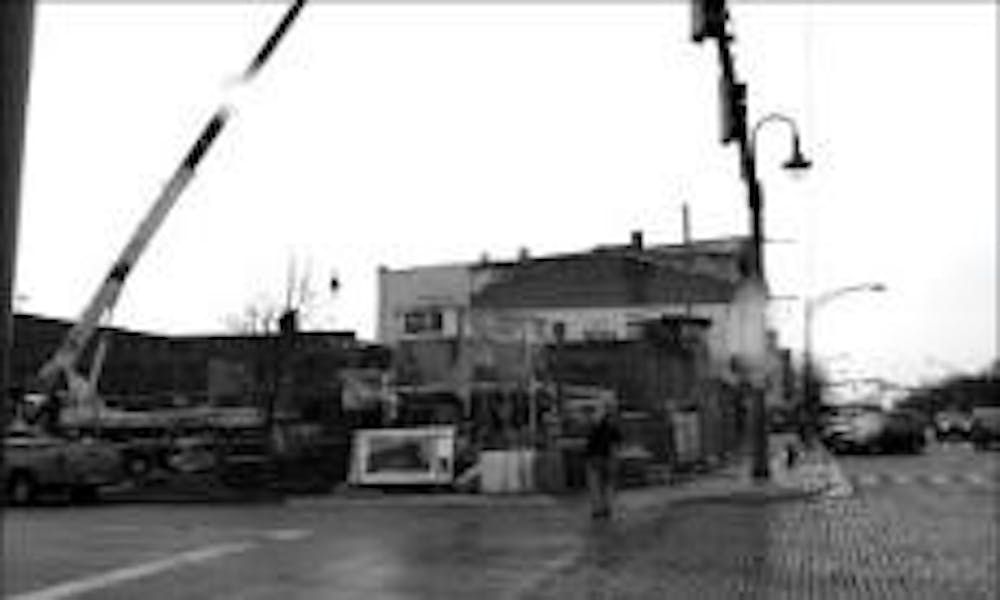
Main and High Development continues building The Lofts at One West High Street.
The long battle between the city of Oxford and Main and High Development over a fraud claim is nearing completion.
The court case between Main and High Development and the city of Oxford progressed Feb. 12 as Butler County's Court of Common Pleas Judge Andrew Nastoff ruled in favor of the city, the defendant, by granting its motion for summary judgment.
Oxford Law Director Steve McHugh said the plaintiff, Main and High Development, has 30 days from the date of the judgment to appeal the decision to the 12th District Court of Appeals.
The plaintiff, Christopher Rodbro and Bernard Rumpke of Main and High Development, filed suit for fraud Aug. 29, 2006 against former Oxford city manager Jane Howington.
Doug Elliott, Oxford's current city manager, said the legal process is time-consuming, which explains why the decision has taken so long.
"The judge did a fairly good job highlighting the facts," Elliott said.
Elliott said the case was legitimately settled, but the judgment failed to include all the facts of additional claims filed against the city that were eventually dropped by the plaintiff.
According to Nastoff's judgment, the plaintiff accused Howington of allegedly deceiving a Main and High agent regarding property and lot splits during a telephone conversation Dec. 1, 2005.
In judgment, Nastoff said, "The Court finds there are no material issues of fact concerning at least one element of the plaintiff's fraud claim."
Main and High Development owns property at the intersection of Main and High streets, the same property occupied by a Wendy's restaurant before it was destroyed by fire Aug. 12, 2005.
Enjoy what you're reading?
Signup for our newsletter
Following the damages, the property owners decided to tear down the building and split the two 4,200-square foot lots into four 2,100-square foot lots to build apartments, according to Nastoff's judgment.
Before Dec. 1, 2005, Oxford's statuary code did not include procedures or regulations concerning lot splits. The plaintiff hired an agent to develop the land according to the lot splits.
In a telephone conversation Dec. 1, 2005, Howington allegedly told Main and High's agent to "just keep on doing what you're doing."
Howington also said there was nothing to worry about since there were no scheduled city council meetings to discuss lot splits, Nastoff said in his judgment.
Nastoff also said that later in the day on Dec. 1, 2005, an emergency city council meeting was called regarding lot splits, and Oxford passed a four-month moratorium on lot splitting.
The moratorium restrained lot splits for a period of four months so the city council could study the land and its issues.
The plaintiff submitted its application to the city for lot splits Dec. 2, 2005, and the city of Oxford rejected the application because of the newly imposed moratorium, according to Nastoff's judgment.
The judgment said the plaintiff based the fraud claim on what Howington told the Main and High Development agent in the Dec. 1 telephone conversation and how they subsequently delayed filing a lot split application to the city.
"Only city council members could have conclusively represented the pendency of an emergency meeting," Nastoff said.
Nastoff ruled the plaintiff depended on the wrong person to delay filing their lot split application.
With the finalization of the case pending, Elliott said Main and High Development has begun re-construction of its property with an apartment-retail complex.
"We're happy that (the case is) behind us now and that we're getting a new building," Elliott said.




